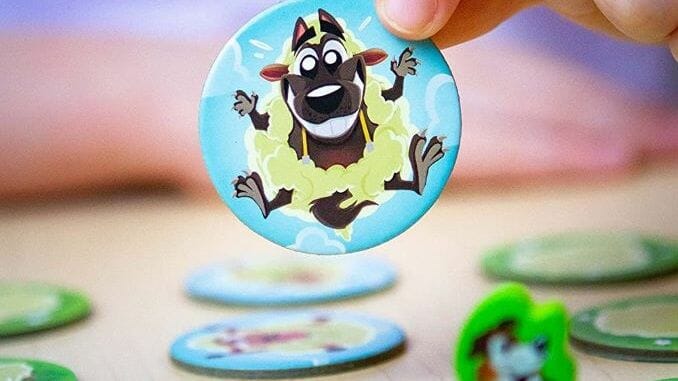Protect Your Sheep in the Kids Board Game Wilson & Shep
All images courtesy of Blue Orange Games
Readers ask me all the time to recommend games they can play with their kids, but one of the bigger voids in the tabletop space is games for younger players (below age seven) that won’t bore adults to tears or don’t rely excessively on luck. (Looking at you, Candyland—the perfect game if you want to teach your kids early that life is pointless and random.) Blue Orange Games published Dragomino in 2020, and it has become my go-to recommendation for a game that you can play with kids as young as four. My youngest daughter loves it (“the dragon egg game”), my nephew loves it, I’ve given it twice as a gift, and many friends and readers have come back with similar raves. It’s easy for a kid as young as four or five to grasp and play well, but it’s not excruciating for the grown-up(s) at the table, and it has just the right amount of luck involved.
Blue Orange’s latest big release for the tiny gamer set is Wilson & Shep, a very light game of hide-and-seek with a bluffing element, playing as one-against-one or one-against-many, with fast turns and lots of silliness. One player plays the wolf, Wilson, who is hiding among the sheep—exactly why he’s doing this is never quite articulated in the rules, but we all know that he’s there to steal their Oreos—while all other players will try to uncover him before the round ends.
The game comes with 16 sheep tokens and one wolf token, all of which have the same symbol on the back. You lay out a 4×4 grid of sheep tokens, all face-down, and then all players other than Wilson close their eyes. The player playing as Wilson then replaces one of them with the wolf token, also face down. (They may choose to move the pieces around a little bit so it’s not so obvious which one they replaced.) The sheep players then place their sheepdog, Shep, on any token they want, flipping it over to reveal whether it’s a sheep or the wolf, and then each sheep player moves it one space orthogonally or diagonally, again revealing what’s beneath.
